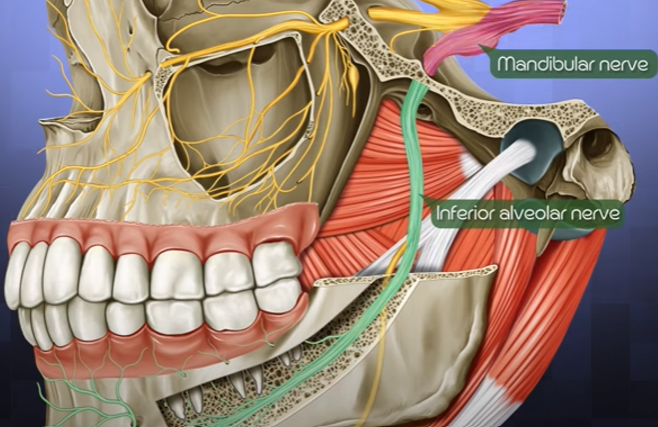How Nerves work in your teeth? The Nerve Anatomy of Teeth.
The human tooth is a complex organ that is essential for chewing, biting, and speaking. Beneath its hard outer layers lies an intricate network of nerves that are responsible for transmitting sensory information to the brain.
The nerves in teeth are located in the dental pulp, which is the soft tissue that fills the center of the tooth. The dental pulp contains blood vessels, lymph vessels, and connective tissue, as well as nerves. The nerves in the dental pulp are responsible for transmitting sensations of pain, temperature, touch, and pressure from the teeth to the brain.
There are three main types of nerves in teeth:
- Afferent nerves: Afferent nerves carry sensory information from the teeth to the brain. These nerves are responsible for transmitting sensations of pain, temperature, touch, and pressure.
- Efferent nerves: Efferent nerves carry motor signals from the brain to the teeth. These nerves are responsible for controlling the blood flow and the movement of the teeth.
- Autonomic nerves: Autonomic nerves regulate involuntary functions, such as blood pressure and heart rate. They also play a role in the healing process of damaged teeth.
The nerves in teeth are essential for maintaining the health and function of the teeth. They help to protect the teeth from damage, and they allow us to perceive sensations in our mouths. If the nerves in teeth are damaged, it can lead to pain, sensitivity, and even tooth loss.
Here are some of the key functions of the nerves in teeth:
- Sensing temperature: The nerves in teeth can detect hot and cold temperatures. This helps us to avoid damaging our teeth with extreme temperatures.
- Detecting pain: The nerves in teeth can detect pain from injury, decay, or infection. This pain can be sharp or dull, and it can be constant or intermittent.
- Responding to touch and pressure: The nerves in teeth can detect touch and pressure. This allows us to appreciate the texture of food while we are chewing.
If you are experiencing pain or sensitivity in your teeth, it is important to see a dentist right away. The dentist can diagnose the cause of the problem and recommend the best treatment option. In some cases, the dentist may need to perform a root canal or extraction to remove the damaged tooth.
By understanding the nerve anatomy of teeth, we can better appreciate the importance of these delicate structures. The nerves in teeth play a vital role in our overall oral health and well-being.thumb_upthumb_downshareGoogle it

